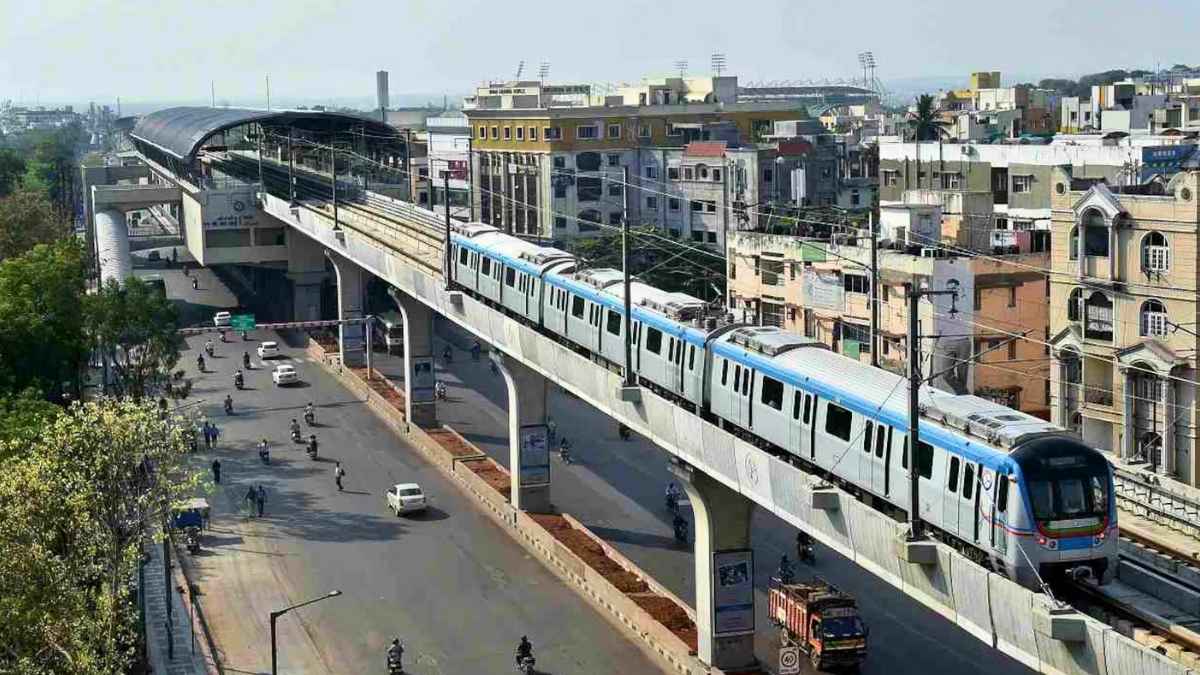The Hyderabad Metro Rail project has garnered significant international acclaim, with Harvard University publishing an in-depth case study that positions it as a leading example of a successful Public-Private Partnership (PPP) in the global metro rail landscape.
Featured in the esteemed Harvard Business Review, the study, conducted by the Indian School of Business (ISB), meticulously chronicles the metro’s journey from conceptualisation to execution, highlighting its notable achievements in overcoming multifaceted challenges and establishing itself as a crucial artery for sustainable urban mobility. This recognition from a globally renowned institution underscores the project’s significance not only for Hyderabad but also as a potential blueprint for other rapidly urbanising regions worldwide. The Harvard case study, titled ‘Hyderabad Metro – From Concept to Execution: The World’s Largest Metro Rail Project under Public-Private Partnership’, delves into the genesis of the ambitious project, tracing its origins to the vision of N.V.S. Reddy, the Managing Director who proposed the metro system to address Hyderabad’s burgeoning urban transportation woes. The study elucidates the strategic decision to adopt the PPP model for this large-scale infrastructure undertaking, a choice that, while presenting its own set of complexities, ultimately proved instrumental in the project’s realisation. It meticulously details the various hurdles encountered along the way, ranging from intricate land acquisition issues and public protests to navigating intricate financial landscapes. The fact that the Hyderabad Metro not only weathered these storms but emerged as a world-class infrastructure project is a testament to effective planning, resilient leadership, and adaptive execution strategies.
The findings of the Harvard Business Review study underscore the critical role the metro now plays as a cornerstone of Hyderabad’s transportation infrastructure. It highlights the metro’s transformation into a vital artery for daily commuters, significantly easing traffic congestion and reducing travel times across the sprawling metropolis. Beyond its functional role, the study positions the Hyderabad Metro as a compelling model for infrastructure development through the PPP framework, offering valuable insights for other nations and cities grappling with similar urban mobility challenges. The research specifically aims to dissect the key factors that contributed to the Hyderabad Metro’s success, seeking to answer critical questions about its strategic accomplishments and the broader lessons applicable to managing complex, multi-dimensional projects of this scale. This global recognition from Harvard University is not an isolated instance of international acclaim for the Hyderabad Metro. Earlier, Stanford University also published research papers acknowledging the project’s success and its innovative approaches to urban transportation. This consistent acknowledgement from leading academic institutions globally further solidifies the Hyderabad Metro’s standing as a benchmark for sustainable and efficient urban transit solutions. The project’s emphasis on providing a reliable and comfortable public transportation option directly aligns with the goals of reducing private vehicle usage, thereby contributing to lower carbon emissions and a greener urban environment.
The success of the Hyderabad Metro also carries significant implications for gender-neutral urban development. By providing a safe, accessible, and affordable mode of transport, it enhances the mobility and independence of women, enabling greater participation in education, employment, and other socio-economic activities. Efficient public transport systems are crucial for fostering equitable cities where transportation is not a barrier to opportunity for any segment of the population. In conclusion, the Harvard University case study on the Hyderabad Metro Rail serves as a powerful endorsement of India’s capabilities in executing large-scale, sustainable urban infrastructure projects through innovative PPP models. The recognition highlights the project’s contribution to enhancing urban mobility, its potential for reducing carbon footprints, and its role in fostering more equitable access to transportation. The lessons gleaned from the Hyderabad Metro’s journey, as meticulously documented by Harvard, offer valuable insights for urban planners and policymakers globally striving to create efficient, sustainable, and inclusive cities for the future.
Also Read: Aqua Line Phase 2 starts between BKC and Worli reducing travel time


